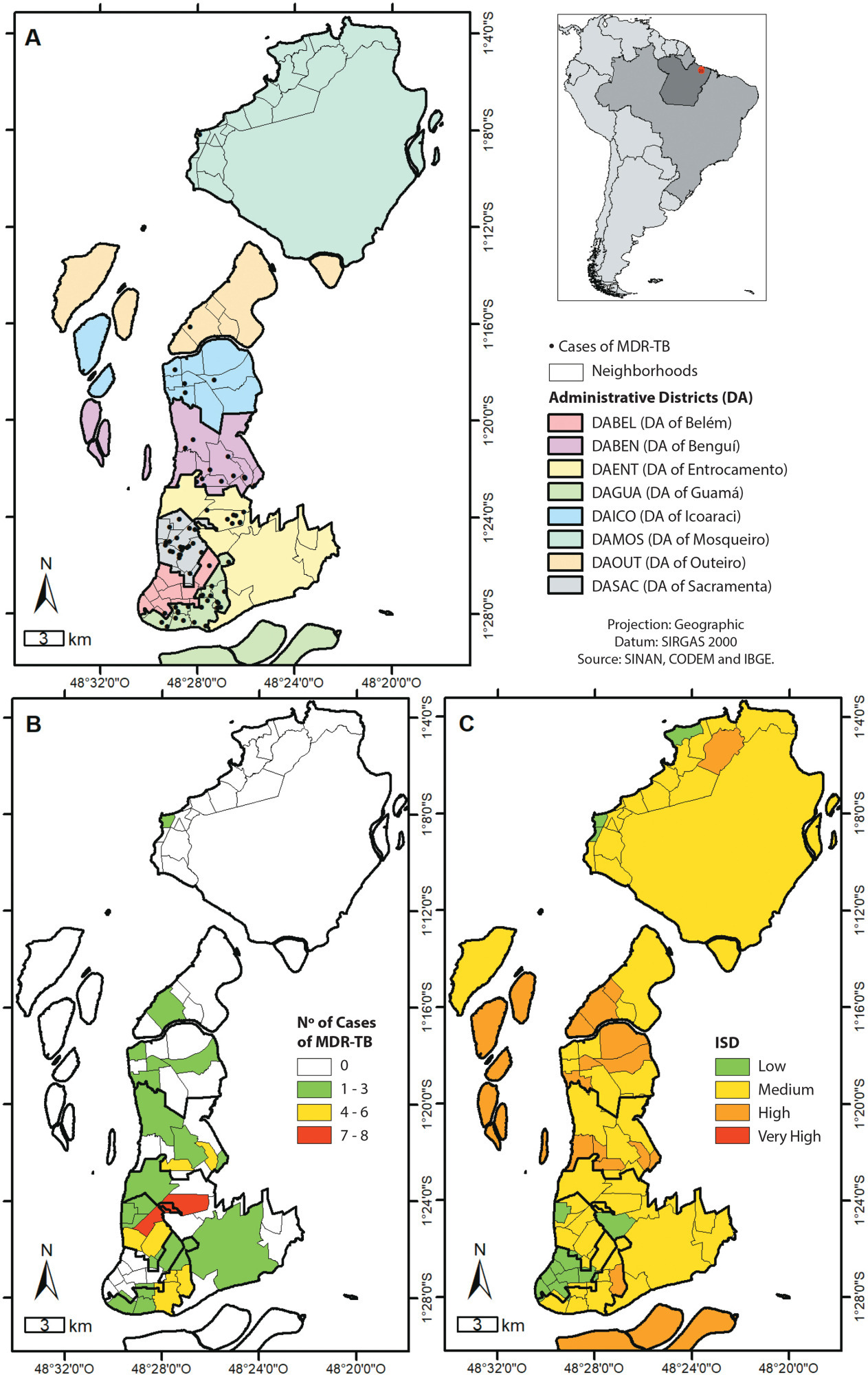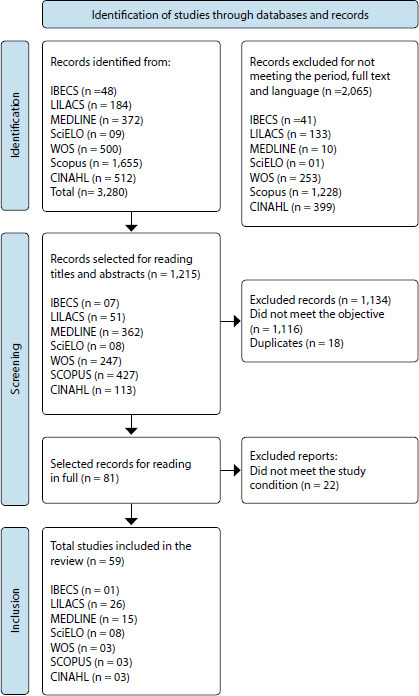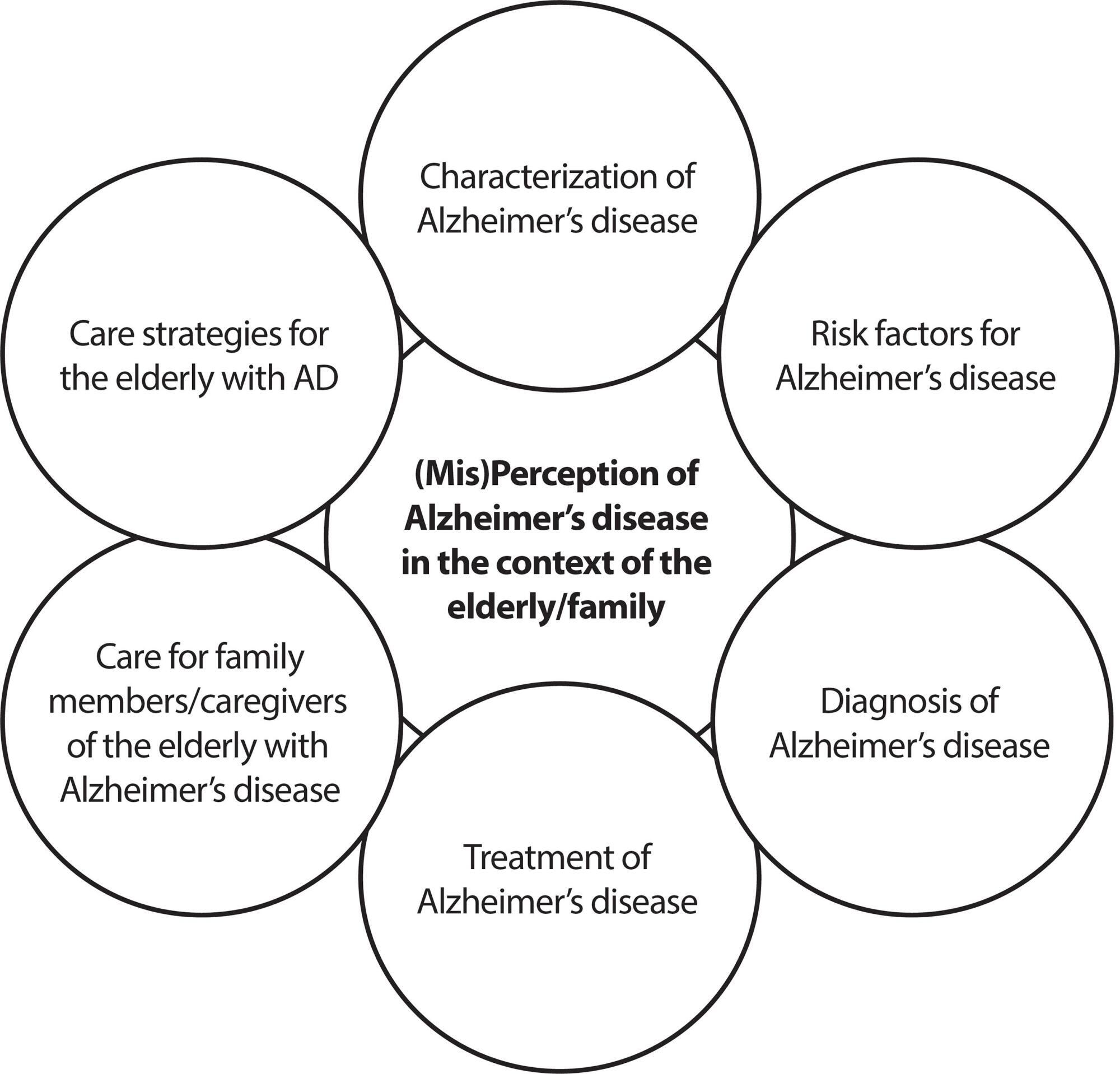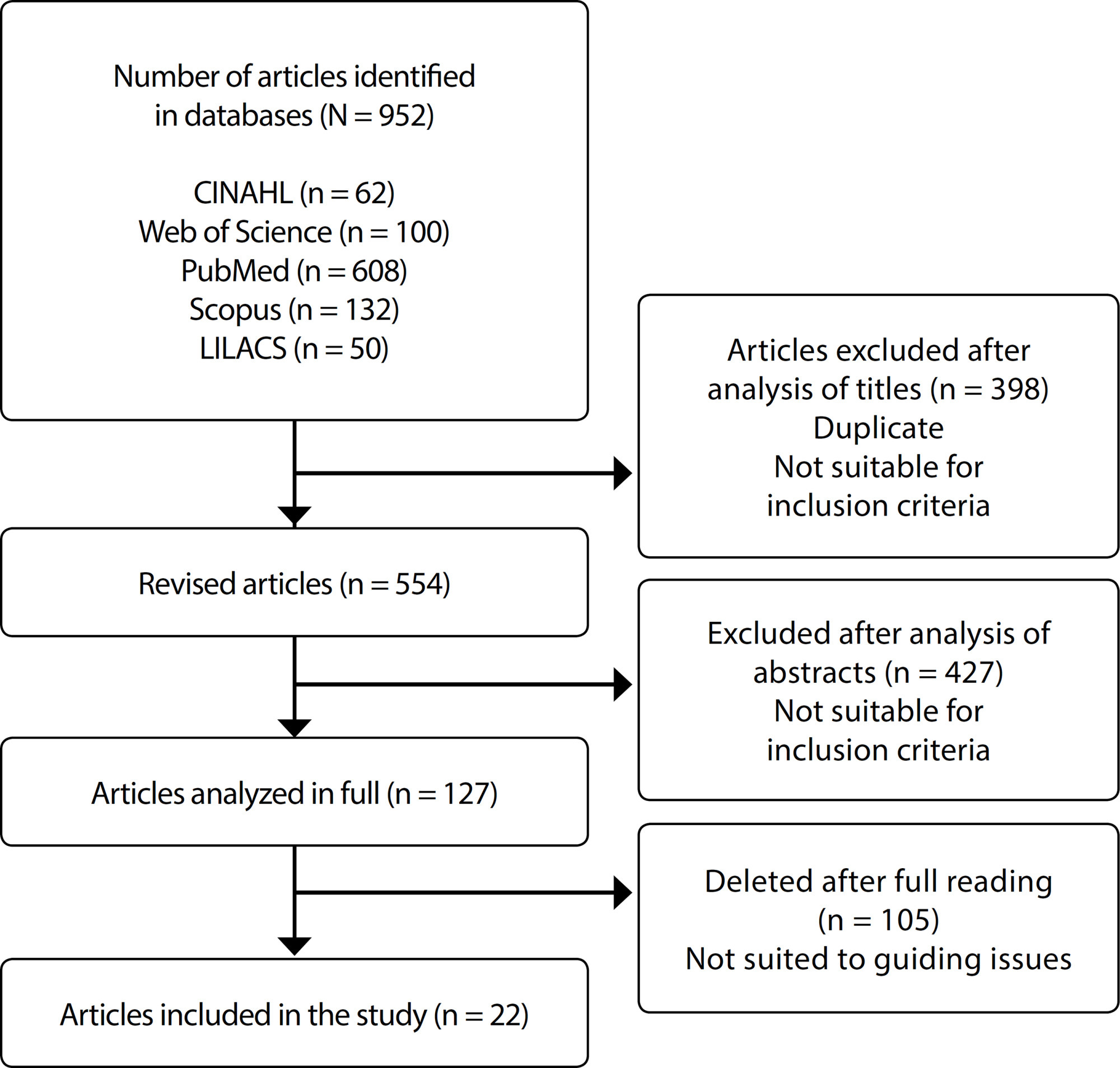-
01-01-2015
Nursing actions in primary care and the control of diseases preventable through vaccines
Revista Brasileira de Enfermagem. 2015;68(5):803-809
Abstract
Nursing actions in primary care and the control of diseases preventable through vaccines
Revista Brasileira de Enfermagem. 2015;68(5):803-809
DOI 10.1590/0034-7167.2015680506i
Views0See moreABSTRACT
Objective:
to discuss the actions performed by nurses in the control and eradication of diseases preventable with vaccines in healthcare setting, according to the National Primary Health Care Policy.
Method:
qualitative research supported by the social phenomenology of Schutz. It had as its setting a Family Health Clinic, located in the city of Rio de Janeiro (Brazil), with ten nurses. The data collection occurred through interviews.
Results:
nurses’ actions aimed at the control and eradication of preventable diseases mainly involve updating a vaccination card, administering the vaccine, and guiding the user of the Health Unit, with the purpose of preventing diseases. The National Primary Care Policy and all manuals from the Ministry of Health recognize the importance of focusing on the service user.
Conclusion:
the user’s lifestyle must be considered, and his access to services aiming at the expansion of the control of diseases preventable with vaccines should be promoted.

-
01-01-2015
Children with neuropsychomotor development delay: music therapy promoting quality of life
Revista Brasileira de Enfermagem. 2015;68(5):797-802
Abstract
Children with neuropsychomotor development delay: music therapy promoting quality of life
Revista Brasileira de Enfermagem. 2015;68(5):797-802
DOI 10.1590/0034-7167.2015680505i
Views0See moreABSTRACT
Objective:
to identify the influence of music therapy on the behavior and quality of life of children with neuropsychomotor development delay (NPMDD).
Method:
experimental research, with applications of music therapy (in a group of children) held in the specialized association in Cruz das Almas – Bahia, composed of 17 children with NPMDD aged 5 to 12 years. The behavior of children involving emotional, physical, social and school aspects was observed.
Results:
there was an evolution in all aspects, being this improvement significant to Emotional Capacity and School Capacity domains, showing the beneficial effects of music therapy.
Conclusion:
music therapy becomes a treatment option for children with NPMDD, improving their quality of life.

-
01-01-2015
Spirituality, religion and personal beliefs of adolescents with cancer
Revista Brasileira de Enfermagem. 2015;68(5):791-796
Abstract
Spirituality, religion and personal beliefs of adolescents with cancer
Revista Brasileira de Enfermagem. 2015;68(5):791-796
DOI 10.1590/0034-7167.2015680504i
Views0See moreABSTRACT
Objective:
to examine adolescents’ perception about spirituality, religion and personal beliefs in their lives due to cancer and a possible strategy for coping with the disease.
Method:
qualitative research, both descriptive and exploratory. The data were collected by means of a personal semi-structured interview, and the categories were analyzed by content analyzes.
Results:
nine adolescents who were undergoing cancer treatment at one of the two institutions located Uberaba, Brazil, participated in the study. Based on the analysis and interpretation of results, it was possible to systematize them according to four categories: spiritual history of the individual; faith and belief; importance of spirituality in their lives, and the community acting as a spiritual supporter. Most adolescents referred to spirituality as being an important tool for dealing with the disease, especially concerning religious rituals and community support.
Conclusion:
spirituality creates hope for adolescents, which helps them to cope with cancer-related diffi culties and contribute to the search for the meaning of life.
-
01-01-2015
Coping strategies of nursing students for dealing with university stress
Revista Brasileira de Enfermagem. 2015;68(5):783-790
Abstract
Coping strategies of nursing students for dealing with university stress
Revista Brasileira de Enfermagem. 2015;68(5):783-790
DOI 10.1590/0034-7167.2015680503i
Views0See moreABSTRACT
Objective:
to identify the coping strategies used by nursing students in a university in southern Brazil, establishing the relationship between the sociodemographic and academic variables examined.
Method:
an exploratory, descriptive, quantitative study, carried out with 146 nursing students, through application of the Coping Strategies Inventory. For the data analysis, descriptive statistics, analysis of variance and regression analysis were used.
Results:
it was found that the coping strategy most used by nursing students is escape. A connection was also detected between the academic dissatisfaction variable and the use of negative coping strategies.
Conclusion:
it was noted that students satisfi ed with the course used positive coping strategies targeting the problem, whereas dissatisfi ed students used negative strategies focusing on the emotion.

-
01-01-2015
Unemployment and psychological distress in nurses
Revista Brasileira de Enfermagem. 2015;68(5):775-782
Abstract
Unemployment and psychological distress in nurses
Revista Brasileira de Enfermagem. 2015;68(5):775-782
DOI 10.1590/0034-7167.2015680502i
Views0See moreABSTRACT
Objective:
to assess psychological distress in nurses searching for their first job, especially symptoms of depression, and identify the factors that caused mental suffering, and how these nurses cope with the situation.
Method:
this was a qualitative study carried out with unemployed nurses who had graduated less than two years before the time of the study, and were residents of the town of Assis in the Brazilian state of São Paulo. Data were gathered by means of semi-structured interviews, content analysis, and application of the Beck Depression Inventory psychometric scale.
Results:
of the 14 nurses that participated, three had scores on the psychometric scale indicative of depression. Participants reported psychological distress related to unemployment, poor university education, and surplus labor due to the large number of graduates and lack of jobs, as well as a culture of employment centered on professionals’ social networks. The unemployed nurses did not have effective ways of coping.
Conclusion:
unemployment promoted psychological distress among the new nurses, especially symptoms of depression, without effective means of coping.
-
01-01-2015
Teste de triagem neonatal: expandir ou não expandir?
Revista Brasileira de Enfermagem. 2015;68(5):771-772
Abstract
Teste de triagem neonatal: expandir ou não expandir?
Revista Brasileira de Enfermagem. 2015;68(5):771-772
DOI 10.1590/0034-7167.2015680501i
Views0“A principal restrição sobre o que podemos detectar no teste de triagem neonatal está rapidamente se tornando o que escolhemos detectar em vez daquilo que nos é limitado por razão de viabilidade técnica ou custo”().Os avanços tecnológicos estão conferindo ao mundo médico uma oportunidade de aumentar o número de patologias para as quais os recém-nascidos […]See more -
01-01-2015
Newborn blood spot screening: to expand or not to expand?
Revista Brasileira de Enfermagem. 2015;68(5):771-772
Abstract
Newborn blood spot screening: to expand or not to expand?
Revista Brasileira de Enfermagem. 2015;68(5):771-772
DOI 10.1590/0034-7167.2015680501i
Views0“The principal constraint on what we can detect in newborn screening is fast becoming what we choose to detect: rather than what is limited for us by technical feasibility or cost”().Technological advances are providing the medical world an opportunity to extend the number of conditions newborn babies are screened for. Tandem mass spectrometry (TMS, also […]See more -
01-01-2015
International Classification for Nursing Practice – ICNP®: application to the Brazilian reality
Revista Brasileira de Enfermagem. 2015;68(4):730-731
Abstract
International Classification for Nursing Practice – ICNP®: application to the Brazilian reality
Revista Brasileira de Enfermagem. 2015;68(4):730-731
DOI 10.1590/0034-7167.2015680422i
Views0The author and organizer, Telma Ribeiro Garcia, added her theoretical and practical knowledge to those of a dozen other authors for the creation of the book “International Classification for Nursing Practice – ICNP®: application to the Brazilian reality”. She is a retired professor of the Department of Public Health Nursing and Psychiatry at the Federal […]See more
-
ORIGINAL ARTICLE10-19-2020
Spatial patterns of multidrug-resistant tuberculosis: correlation with sociodemographic variables and type of notification
Revista Brasileira de Enfermagem. 2020;73:e20190845
Abstract
ORIGINAL ARTICLESpatial patterns of multidrug-resistant tuberculosis: correlation with sociodemographic variables and type of notification
Revista Brasileira de Enfermagem. 2020;73:e20190845
DOI 10.1590/0034-7167-2019-0845
Views1See moreABSTRACT
Objective:
Correlate the cases of multidrug-resistant tuberculosis and its spatial patterns with the type of notification and sociodemographic variables.
Method:
Ecological study carried out in the municipality of Belém, with 77 cases of multidrug-resistant tuberculosis registered in the Special Treatment Information System for Tuberculosis, between 2012 and 2016. For analysis, the data was debugged followed by geo-referencing in ArcGis 10.3 and Terra View 4.2.2. To relate the cases with the type of notification, the BioEstat 5.4 software was used, with a significance level of 95%.
Results:
Of the total, 40 (52%) were new cases; 27 (35%), relapses; and ten (13%) were re-enrolled after leaving. Multidrug-resistant tuberculosis was randomly distributed and related to income, household, territorial cluster and water supply. There was a concentration of cases in two administrative districts, corresponding to 28.5% and 27.3% of the total, with a median Sociodemographic Index.
Conclusion:
Behavior of multidrug-resistant tuberculosis influenced by sociodemographic indicators.

-
ORIGINAL ARTICLE09-23-2022
Analysis of the concept of cardiovascular risk: contributions to nursing practice
Revista Brasileira de Enfermagem. 2022;75(4):e20210803
Abstract
ORIGINAL ARTICLEAnalysis of the concept of cardiovascular risk: contributions to nursing practice
Revista Brasileira de Enfermagem. 2022;75(4):e20210803
DOI 10.1590/0034-7167-2021-0803
Views0See moreABSTRACT
Objectives:
to analyze the concept of cardiovascular risk to support nursing practice.
Methods:
this is an analysis to define the concept of cardiovascular risk, through the use of eight steps of Walker’s and Avant’s framework, using a literature review in indexed scientific journals.
Results:
cardiovascular risk is defined in a broad and original way as a context of health and nursing care that makes it possible to identify modifiable (cardiometabolic, behavioral, psychosocial, cultural and occupational) and non-modifiable (biological) risk factors for cardiovascular diseases that act as early and interrelated markers, of multiple and heterogeneous etiology, predisposing to cardiovascular vulnerability.
Conclusions:
with the analysis and definition of the concept of cardiovascular risk, we realized that it will be possible to base nursing practice, with implications in clinical practice for identifying and reducing risk factors for cardiovascular diseases, with nursing relevance in the care of these subjects.

-
ORIGINAL ARTICLE07-13-2020
Awareness raising workshop for nursing students on the elderly with Alzheimer’s disease: contributions to education
Revista Brasileira de Enfermagem. 2020;73:e20190021
Abstract
ORIGINAL ARTICLEAwareness raising workshop for nursing students on the elderly with Alzheimer’s disease: contributions to education
Revista Brasileira de Enfermagem. 2020;73:e20190021
DOI 10.1590/0034-7167-2019-0021
Views1See moreABSTRACT
Objective:
To describe the contribution of an awareness-raising workshop for nursing students on Alzheimer’s disease in the context of the elderly/family.
Methods:
Strategic action-research developed with 15 university students from the sixth to the eighth semester of Nursing at a university institution in the Rio Grande do Sul. The data collected through semi-structured interviews, before and after an awareness-raising workshop on Alzheimer’s disease in elderly/family, were subjected to thematic content analysis.
Results:
Six categories were identified that concern (Mis) perception of Alzheimer’s disease in the context of elderly/ family, from the characterization; risk factors; diagnosis; treatment of Alzheimer’s disease; from care to family members/caregivers; and care strategies for the elderly with Alzheimer’s disease.
Conclusion:
The awareness-raising workshop enabled the students to broaden and deepen the knowledge on the theme of Alzheimer’s disease in the elderly.

-
REFLECTION12-13-2019
Women with fetal death: nurses’ care limitations
Revista Brasileira de Enfermagem. 2019;72:365-368
Abstract
REFLECTIONWomen with fetal death: nurses’ care limitations
Revista Brasileira de Enfermagem. 2019;72:365-368
DOI 10.1590/0034-7167-2018-0261
Views0See moreABSTRACT
Objective:
To present the limitations of the nursing care for women with fetal death, reflecting on this challenge for care practices.
Method:
Reflective study with theoretical focus on national and international publications, along with the experience of the authors in the area of women’s health and obstetrics.
Results:
There are limitations related to nursing care, which involve feelings of insecurity and powerlessness, inappropriate attitudes of these professionals in front of women, difficulties to manage emotional aspects, and structural problems of health services.
Final Considerations:
This study points out that there are challenges to qualify nursing care for women with fetal death, which included academic studies and continuing education in health services. Relational aspects should be valued and demand more sensitivity from nurses, with more empathic relationships in the care for women with fetal death.
-
ORIGINAL ARTICLE02-06-2023
Teaching entrepreneurship in undergraduate Nursing course: evaluation of an educational proposal
Revista Brasileira de Enfermagem. 2023;76(2):e20210244
Abstract
ORIGINAL ARTICLETeaching entrepreneurship in undergraduate Nursing course: evaluation of an educational proposal
Revista Brasileira de Enfermagem. 2023;76(2):e20210244
DOI 10.1590/0034-7167-2021-0244
Views1See moreABSTRACT
Objective:
To evaluate a proposal for teaching entrepreneurship in an undergraduate Nursing course that uses active methodologies and activities based on the theory of meaningful learning.
Methods:
Interventional, prospective study, with a quantitative perspective, with a total of 102 participating students, carried out from July 2017 to December 2019 at a public university in the state of Sao Paulo. Statistical analysis were performed by non-parametric Chi-square or Fisher’s exact tests, with differences considered statistically significant if p < 0.05.
Results:
Improvements were observed in almost all items evaluated, revealing that meaningful learning became more effective with the use of active teaching methodologies. Most students need adaptation and effort to be put into these methods.
Conclusions:
The proposal offers pedagogical content adaptation, specifically for nursing students. New research should expand teaching-learning techniques for the development of future nurses, preparing them adequately for the job market.

-
ORIGINAL ARTICLE10-18-2022
Health education for hospitalized patient in nursing care: a conceptual analysis
Revista Brasileira de Enfermagem. 2022;75(2):e20200459
Abstract
ORIGINAL ARTICLEHealth education for hospitalized patient in nursing care: a conceptual analysis
Revista Brasileira de Enfermagem. 2022;75(2):e20200459
DOI 10.1590/0034-7167-2020-0459
Views0INTRODUCTIONOver the years, the development of health education practices is related to the historical moment of society(). The nineteenth and twentieth centuries presented decisive situations in the evolution process that we know today as health education. Nursing began to consider health educational practices after Florence Nightingale initially focused on professional training. Florence contributed to the […]See more
-
ORIGINAL ARTICLE06-27-2019
Organizational climate and teamwork at the Family Health Strategy
Revista Brasileira de Enfermagem. 2019;72(3):721-727
Abstract
ORIGINAL ARTICLEOrganizational climate and teamwork at the Family Health Strategy
Revista Brasileira de Enfermagem. 2019;72(3):721-727
DOI 10.1590/0034-7167-2017-0770
Views0See moreABSTRACT
Objective:
to measure the organizational climate in the work of professionals from Family Health Strategy (FHS) teams.
Method:
a cross-sectional study carried out with 458 professionals belonging to 72 FHS teams in a municipality in Southern Brazil. Data collection occurred between March and July of 2016 with self-application of the Team Climate Inventory (TCI). Data were analyzed by means of a non-parametric ANOVA.
Results:
“Team Participation” was the best-rated domain (8.11), while “Task orientation” was the worst (7.51). Nurses obtained the highest mean in TCI (8.05), and dentists, the lowest (7.45).
Conclusion:
TCI is an appropriate and innovative tool for assessing the teamwork climate at the FHS. Identifying fragilities such as “task orientation” and relationships among professional categories of the team supports the planning of actions for organizational climate improvements and teamwork at the FHS.
-
TECHNOLOGICAL INNOVATION09-24-2022
Transitional care from the hospital to the home in heart failure: implementation of best practices
Revista Brasileira de Enfermagem. 2022;75(1):e20210123
Abstract
TECHNOLOGICAL INNOVATIONTransitional care from the hospital to the home in heart failure: implementation of best practices
Revista Brasileira de Enfermagem. 2022;75(1):e20210123
DOI 10.1590/0034-7167-2021-0123
Views0See moreABSTRACT
Objectives:
Assess the compliance of the implementation of better evidence in the transitional care of the person with heart failure from the hospital to the home.
Methods:
Evidence implementation project according to the JBI methodology in a cardiology hospital in São Paulo. Six criteria were audited before and after implementing strategies to increase compliance with best practices. 14 nurses and 22 patients participated in the audits.
Results:
In the baseline audit, compliance was null with five of the six criteria. Strategies: training of nurses; reformulation of the hospital discharge form and guidance on self-care in care contexts; and making telephone contact on the 7th, 14th and 21st days after discharge. In the follow-up audit, there was 100% compliance with five of the six criteria.
Conclusion:
The project made it possible to increase the compliance of transitional care practices in people with heart failure with the recommendations based on the best evidence.

Search
Search in:
Nuvem de Tags
Adolescente (85) Atenção Primária à Saúde (239) COVID-19 (91) Criança (91) Cuidados de Enfermagem (269) Educação em Enfermagem (151) Educação em Saúde (139) Enfermagem (930) Enfermagem Pediátrica (86) Estudantes de Enfermagem (77) Estudos de Validação (131) Família (87) Idoso (208) Promoção da Saúde (99) Qualidade de Vida (104) Saúde do Trabalhador (86) Saúde Mental (145) Saúde Pública (82) Segurança do Paciente (150) Tecnologia Educacional (100)



